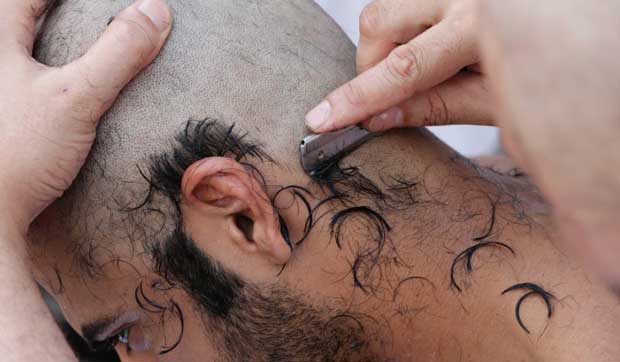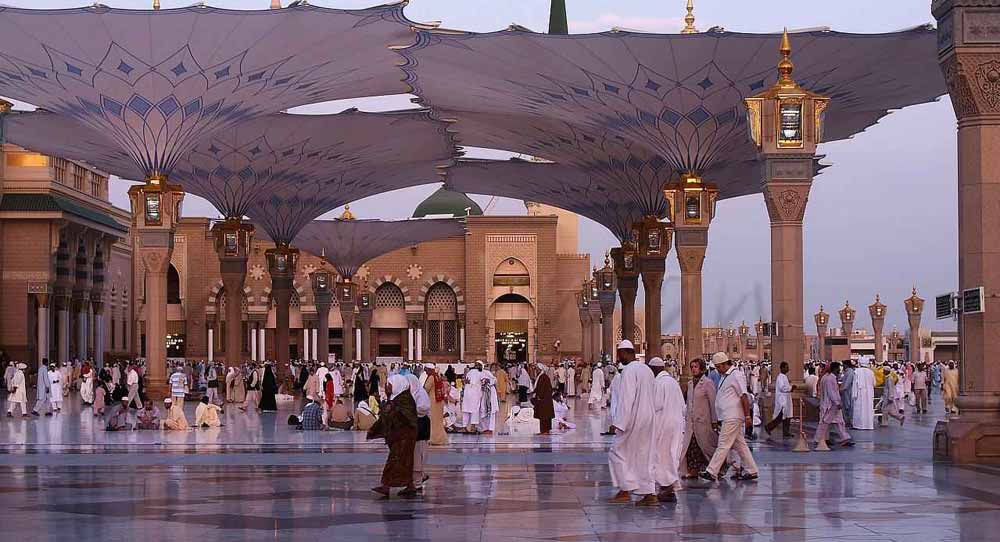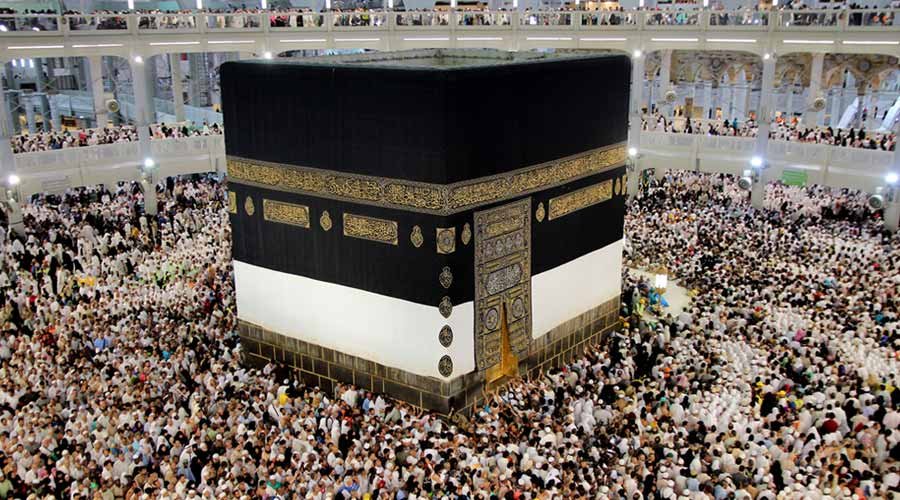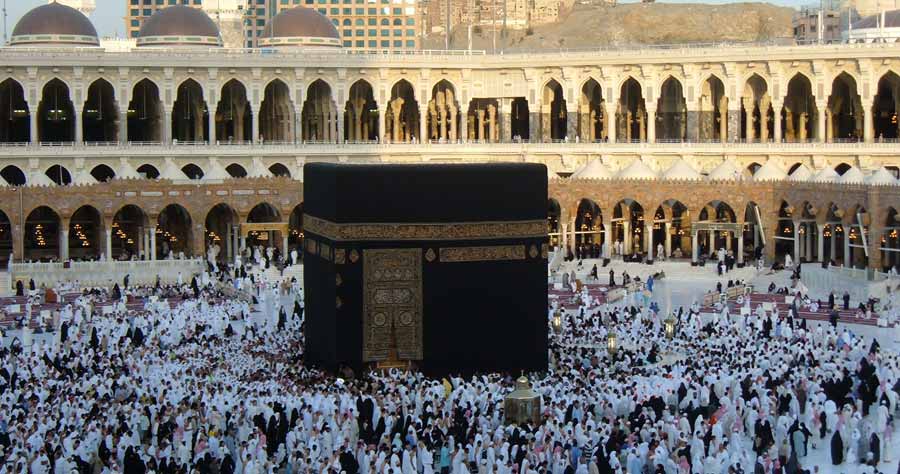Cutting hair in umrah
Mu’meneen Brothers and Sisters,
As Salaam Aleikum wa Rahmatullahi wa Barakatuh. (May Allah’s Peace, Mercy and Blessings be upon all of you)
One of our brothers/sisters has asked this question:
AssalamO Alaykum Wa Rahmatullahi Wa Barakatuhu
Iam from India and had been to Omra from Kuwait, in 2002 for the 1st time during the last 10 days of Ramzaan month.
I performed all arkaan of Omra well, but regarding cutting of hairs I have some doubt which I want to clarify as below:
After completion of Saee during 1st Omra, I have seen some persons (Arab origin) cutting hairs at one corner side of Marwah, and at that time I don’t know the place of hairs cutting, and I went near to one Arab person who already cutting hairs. That Arab person was in Ehraam dress, may be he also had came to perform Omra with his belongings.
He cut my hairs also from three locations from my head and I asked him is it Khalaas (finished) he said Khalaas. I don’t know Arabic language except few words, and after he says “Khalaas”, I thought I have finished all arkaans of Omraa, as I read from books in Omraa hairs shaving is preferred but it can also be cut by 1″ min from 3 locations of head to complete Omraa.
That was the day of Friday morning (10 AM) so I was in a hurry to go to my accommodation to have bath and come back to Haram (Mecca) to perform Friday prayers in Haramsharief as it was the important day for me in Omra journey.
So after having bath I came to Haram in normal dress to perform Friday prayers.
After that in my room some persons asked, “have you not shaved your head”?, your Omra can’t be finished without this. My friend had convinced that Allah is great InshaAllah like that
Before going to Omra, I had plan to perform 3 Omra. One for me and One Omra for my late Father and 3rd One either for my Mother or my Wife (Both alive), so from the beginning I had plan to cut my hairs in 3 Omra to satisfy hairs cutting for 3 Omra.
Since I did my 1st Omra, I had great confusion and some kind of uneasiness in my heart that whether my Omraa will get accepted or not? On the next day (Saturday) morning after I had Fajar prayers at Haram (Mecca mosque) and while way back to room I went in the Saloon and cut my hairs from all portion of my head (not shaved), to cover the mistake which happened and after having bath I weared Ehraam dress and went to Ayesha Mosque (Meeqat) to reenter Mecca to perform 2nd Omra on my late father. So after Waazu I prayed 2 rakaat namaaz at Ayesha mosque and came to Mecca and performed Omraa well and this time I went down straight to Saloon shop which I came to know later, and cut my hairs from entire portion of my head (not shaved) and went back to room and had bath. But as I thought I couldn’t perform for 3rd Omraa.
Later, from Mecca we (all tourist bus members) went to Madina where we stayed 3 days and after Eid prayers we returned to Kuwait.
Now after I came back to Kuwait I had great confusion and one time I asked one Indian person who along with Kuwaiti Aalim, after Friday prayers clarifies individuals doubts, and I also asked my doubt to Indian guy, but he didn’t hear my entire topic and after hearing briefly he said its OK. Some kind of tension was cleared but I was not completely satisfied, I thought to ask again to clear my doubt but time went on and now my family (Wife + 3 childrens all elders) came 2 years back here in Kuwait and they want to return back to India, after performing Omra.
So in this circumstances what I need to do, So please clarify my following doubts:
1. Whether my 1st and 2nd Omra is OK?
2. In case, my 1st / or and 2nd Omra is not OK, what I need to do?
3. I heard Dam (lamb sacrifice) to be given, in my case for what penalty I am liable to give? One lamb or 2 lamb or not at all? If, I am liable to give, then where the sacrifice shall be given? In Mecca or anywhere?
4. If the sacrifice is required in Mecca, as I have to go again for Omra with my family how I should give lamb sacrifice, because if I start Omra journey from Kuwait I have to wear Ehraam from Meeqat, so can can I wear the Ehraam and enter Mecca and later after reaching Mecca can I give sacrifice (Dam) for my previous Omra, and perform Omra with my family?
5. I heard without coming out from Ehraam its Sin of Zeena to meet with wife, as iam staying with my wife, will I comes under this sin, if so, for this Sin what I have to do?
6. Please clarify in detail as I have little time to go to Omra again with my family?
I am very thankful if you could give me proper guidance as above, in detail, and also Iam very thankful for the your entire team rendering great services in the name of Allah and may Allah accept all your services (amen).
(There may be some grammatical and spelling errors in the above statement. The forum does not change anything from questions, comments and statements received from our readers for circulation in confidentiality.)
Answer:
Cutting hair in umrah
In the name of Allah, We praise Him, seek His help and ask for His forgiveness. Whoever Allah guides none can misguide, and whoever He allows to fall astray, none can guide them aright. We bear witness that there is none worthy of worship but Allah Alone, and we bear witness that Muhammad (saws) is His slave-servant and the seal of His Messengers.
Your Question: Whether my 1st and 2nd Omra is OK?
The Prophet (saws) said, “May Allah bless those who shaved (after their pilgrimage of Hajj or Umrah).” The Companions asked him, “O Allah’s Messenger (saws), what about those who clip their hair short?” Thereupon the Prophet (saws) again said, “May Allah bless those who shaved.” They repeated their question the third time, and again the Prophet (saws) said, “May Allah bless those who shaved.” When they asked him for the fourth time, “O Allah’s Messenger (saws), what about those who clip their hair short?” He (saws) replied: “And (may Allah bless) those who clip their hair short.
The absolute majority of the scholars and the jurists in Islam consider it a preferred act and rite of pilgrimage that one shave their heads; but if one cuts their hair short that too would suffice to fulfill the obligations of the pilgrimage.
Allah Subhanah Alone Knows how this practice of cutting a few clips of hair in three places after one has completed their rites of the Umrah pilgrimage started in the Muslim Ummah..there is absolutely no evidence in the authentic and established Sunnah or any of the accepted books of Fiqh regarding the permissibility of this act.
If one in ignorance of the laws of Allah, without any intention to disobey Allah Subhanah, did not shave their hair after the Umrah pilgrimage nor cut it short, but had only a few clips of hair cut in three places..as disliked as the act may be, the majority of the scholars and jurists in Islam are of the opinion that The Lord Most Merciful, if He so Wills, will accept the pilgrimage of the believer, and one does not need to give a damm or sacrifice as atonement. And Allah Alone Knows Best.
Your Question: I heard Dam (lamb sacrifice) to be given, in my case for what penalty I am liable to give? One lamb or 2 lamb or not at all? If, I am liable to give, then where the sacrifice shall be given? In Mecca or anywhere?
Respected brother, in your particular case, you need not give a damm or sacrifice of atonement.but you should indeed turn unto your Lord in sincere taubah and seek His forgiveness for the act that you happened to do in ignorance of the Laws of the Lord Most Majesticit is expected that you will find your Lord Forgiving and Merciful and if He so Wills and Pleases, He will not diminish aught of the reward that is due to you for your pilgrimage.
Your Question: If the sacrifice is required in Mecca, as I have to go again for Omra with my family how I should give lamb sacrifice, because if I start Omra journey from Kuwait I have to wear Ehraam from Meeqat, so can can I wear the Ehraam and enter Mecca and later after reaching Mecca can I give sacrifice (Dam) for my previous Omra, and perform Omra with my family?
First and foremost, the majority of the scholars and jurists in Islam are of the opinion that there is no sacrifice of atonement due from you.thus you are at absolute liberty to visit the House of Allah whenever you so will and please.
Your Question: I heard without coming out from Ehraam its Sin of Zeena to meet with wife, as iam staying with my wife, will I comes under this sin, if so, for this Sin what I have to do?
One of the restrictions of entering the ehraam for pilgrimage is that one cannot conjugate with ones wife until one has come out of the state of ehraam .but rest absolutely assured brother, because you completed all the rites of the pilgrimage and came out of the state of ehraam, you are at absolute liberty to enjoy your lawful relationship with your wife.
Whatever written of Truth and benefit is only due to Allahs Assistance and Guidance, and whatever of error is of me alone. Allah Alone Knows Best and He is the Only Source of Strength.
Your brother and well wisher in Islam,
Umrah Packages | Hajj Packages | Ramadan Umrah Packages | December Umrah Packages
Article by: islamhelpline.net



